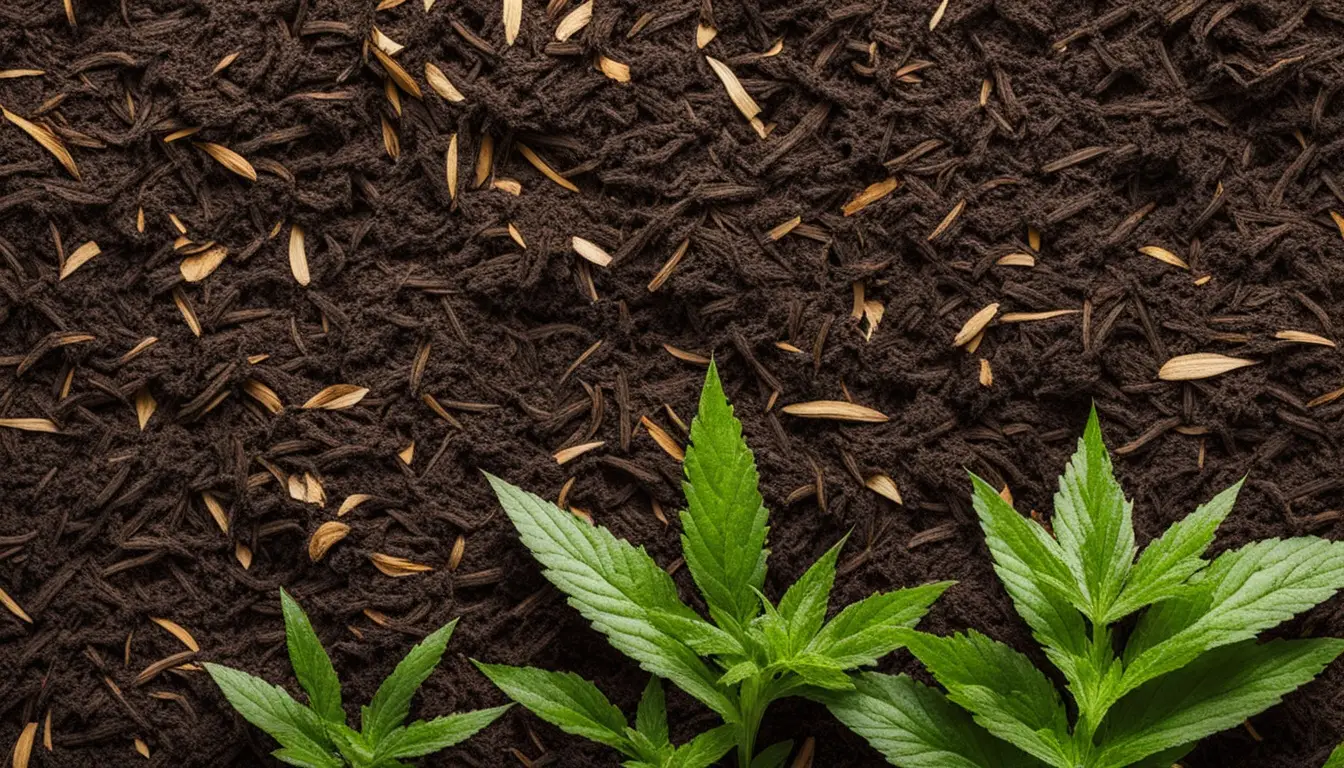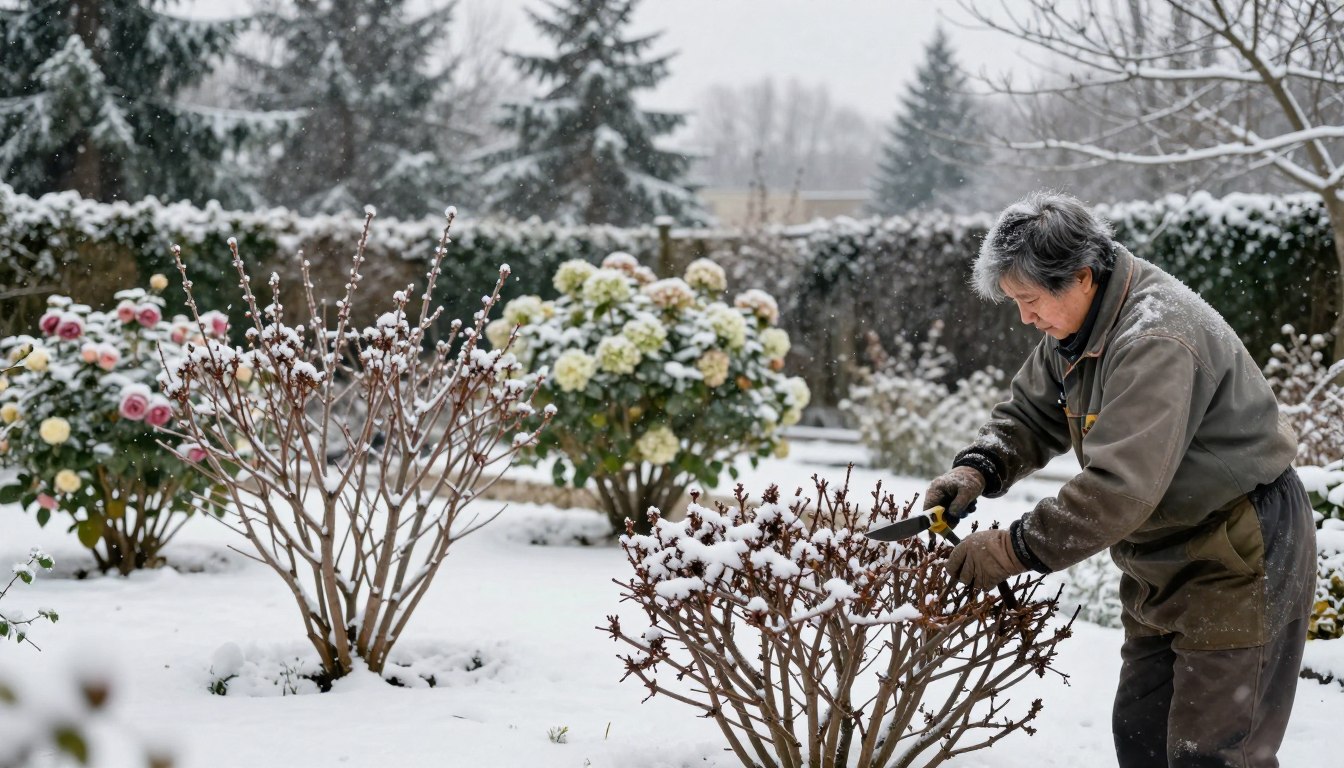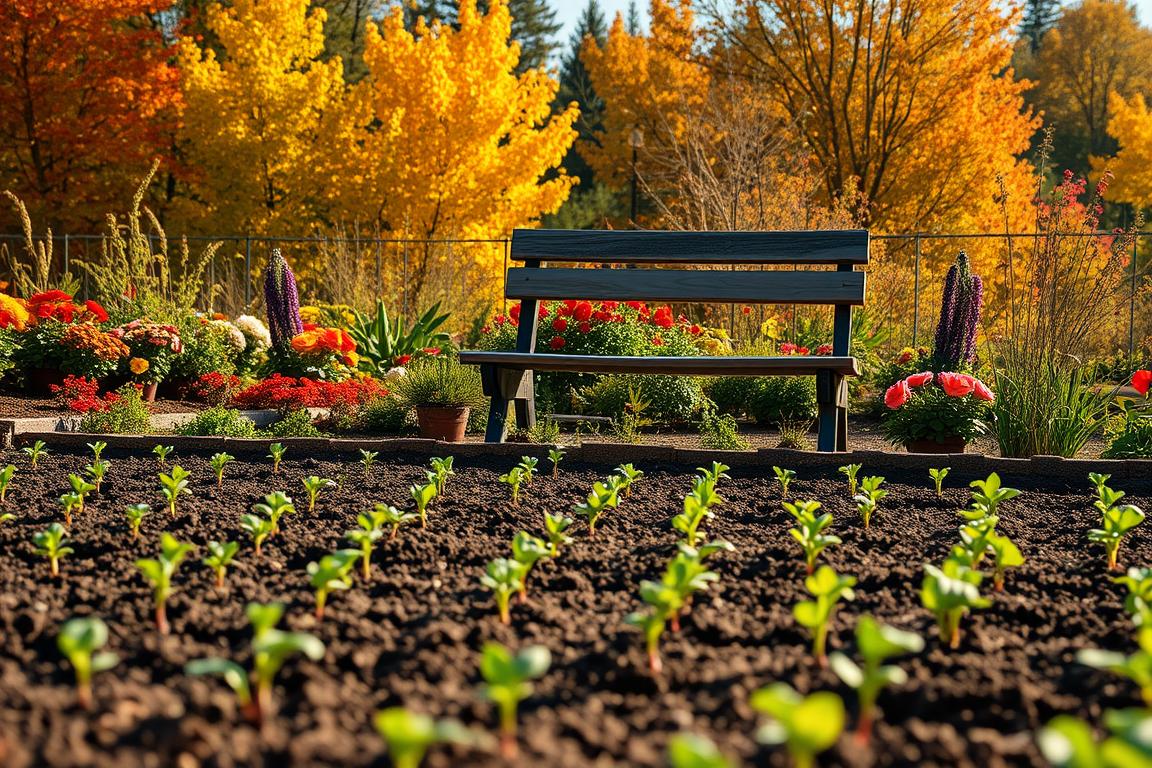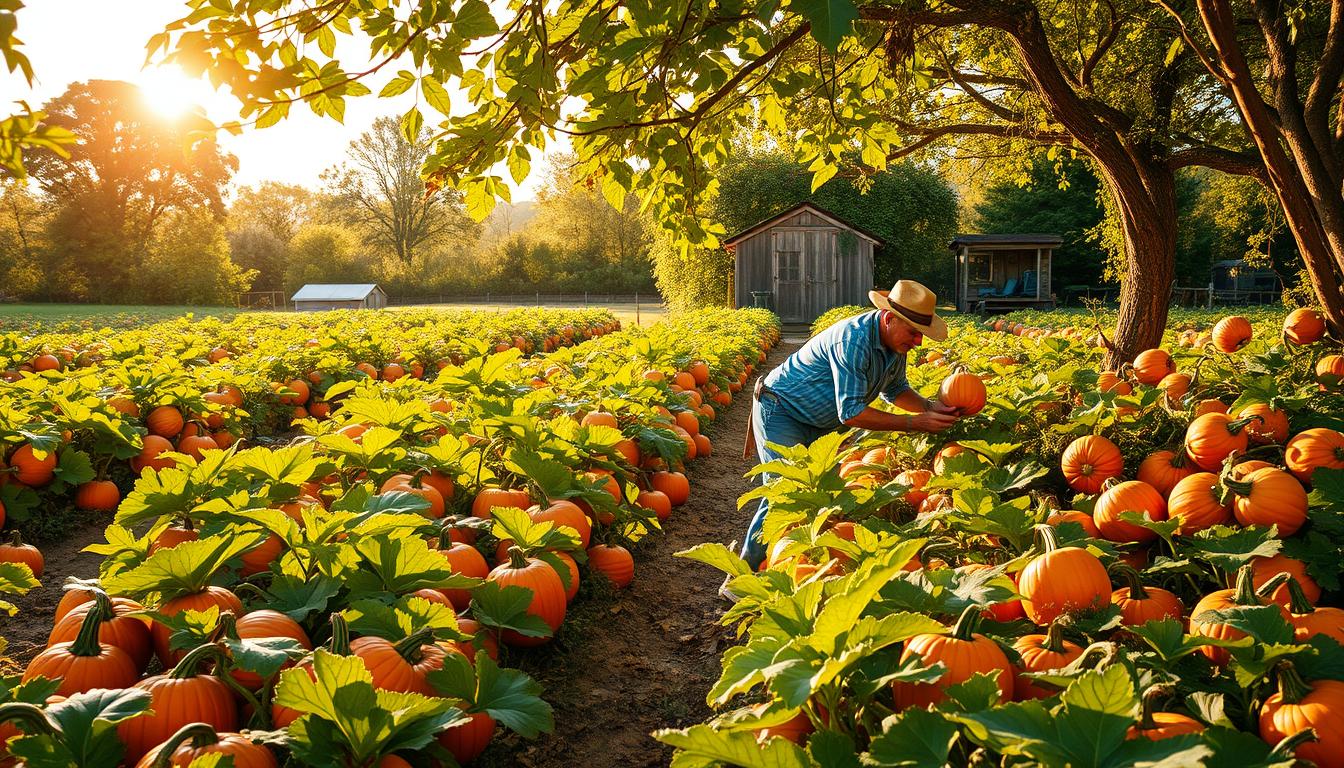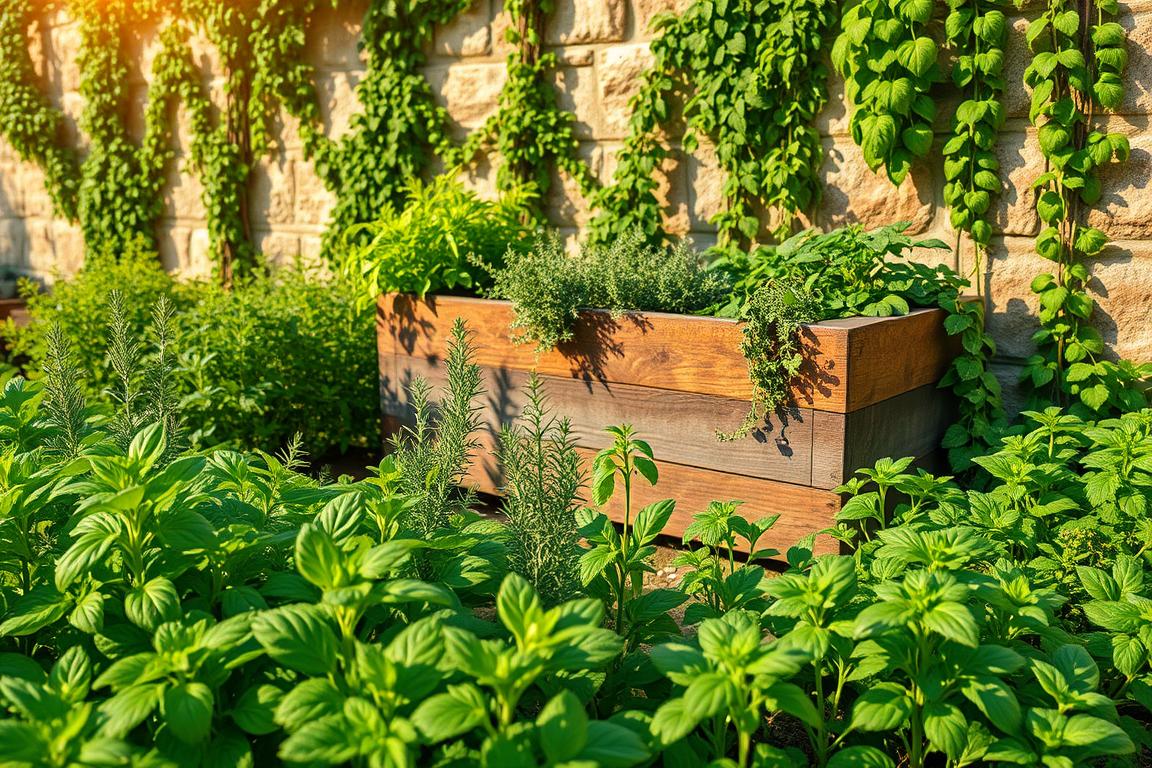Gardeners often face battles with persistent weeds. The secret to winning? It may lie in your mulch choice. In this article, we’ll look at the best mulch types for fighting weeds.
Mulching covers soil with organic or inorganic materials for protection. It keeps moisture, regulates soil temperature, and stops weeds. But with many mulches available, picking the right one can be tricky. Which mulch will beat those pesky weeds?
If your garden’s health and look matter to you, we’ve got important info. Let’s find out which mulch is the best for keeping weeds away.
Key Takeaways
- Mulching is one of the easiest and most effective ways to suppress weed growth in your garden.
- The best mulch for weed prevention depends on factors like cost, your gardening needs, and personal preferences.
- Organic mulches like compost, leaves, and wood chips are generally the most effective and beneficial for weed suppression and soil health.
- Inorganic options like landscape fabrics and rubber mulch can also be effective, but may require more maintenance or have other drawbacks.
- Proper application and replenishment of mulch is key to keeping weeds at bay and promoting healthy, thriving plants.
Understanding the Importance of Mulching
Gardeners and landscapers know mulching is key for a healthy outdoor area. It does a lot, from keeping moisture in to stopping weeds and helping control temperature.
Mulching for Moisture Retention
Mulch helps keep soil moist, which is crucial for plants. It means we don’t have to water as much. And finding that sweet spot for watering is easier when our mulched garden keeps just the right amount of water. Do it well, and your plants will be happy and healthy.
Mulching for Weed Suppression
Mulching for Temperature Regulation
Mulch also helps keep soil temperatures just right. It acts like a blanket, keeping the ground cooler in summer and avoiding big temperature swings. This is great for veggies like carrots, needing warm tops and cool bottoms to thrive.
Knowing how mulch helps with moisture retention, weed suppression, and temperature regulation guides our choices. Mulch is a simple, powerful way to make our gardens do better with less effort.
Organic Mulch Options
The best mulch for stopping weeds is often free and easy to find. Things like compost, leaves, straw, and wood chips work great. They not only stop weeds but also make the soil healthier.
Compost and Leaves
Compost enriches the soil while leaves keep it at the right temperature. They both stop sunlight from reaching weed seeds.
Straw and Grass Clippings
Straw from seed-free bales and untreated grass clippings are good. But it’s bad to use grass treated with herbicides. That’s because it can hurt your plants.
Wood Chips and Sawdust
Wood chips and sawdust are great at keeping weeds away. They slowly break down, helping the soil. You can usually find them for free.
Inorganic Mulch Options
Organic mulches like compost, leaves, and wood chips are great for gardens. Not everyone knows, but inorganic mulches have benefits too. They also help control weeds and keep the soil healthy. Let’s look at some popular inorganic mulches and what’s good and bad about them.
Landscape Fabrics
Weed cloth, or landscape fabrics, are perfect for blocking weeds. They let water and air through. However, they can make the soil too hot and dry. Fabric can tear, especially over time. Paper barriers also rip and make the soil too warm.
Rubber Mulch
Rubber mulch, from old tires, lasts a long time. It looks good and stops weeds. But, it might release bad chemicals into the soil slowly.
Gravel and Stone
Gravel and stone also stop weeds and look nice. They stay put well and are long-lasting. Yet, they can make the soil very warm and add too much alkaline.

Which Mulch Prevents Weeds the Best?
The key to stopping weeds is getting the right mulch thickness. Many people don’t use enough mulch or use too much. To stop weeds and keep moisture in, you need a 3-inch layer of mulch. However, you should not go beyond 3 inches.
A layer of mulch that’s just two inches thick can still allow sunlight to reach weed seeds. This is why keeping the proper mulch depth is critical for stopping weeds. Materials like compost, leaves, and wood chips are great for this job. They block light and improve soil as they break down.
Avoiding Herbicide-Treated Materials
It’s crucial not to use herbicide-treated grass clippings or other materials. These can harm your plants by transferring herbicides to them. Choosing organic, untreated mulch materials is the best way to protect your garden’s health.

| Mulch Type | Weed Prevention | Soil Benefits | Maintenance |
|---|---|---|---|
| Compost | Excellent | Enriches soil, improves moisture retention | Needs annual replenishment |
| Leaves | Very Good | Adds nutrients, improves soil structure | Needs annual replenishment |
| Wood Chips | Excellent | Slowly decomposes, improving soil | Needs occasional replenishment |
| Gravel | Good | Provides drainage, no soil benefits | Rarely needs replenishment |
| Landscape Fabric | Excellent | No soil benefits | Needs occasional replacement |
Mulching Techniques and Tips
Using mulch properly and keeping it up makes your garden look its best. A 3-inch layer is perfect for keeping weeds away. Remember, don’t pile mulch up against plants. This can cause them to rot.
Proper Application and Maintenance
Materials like compost, leaves, and wood chips break down and feed the soil. You should add more each year to keep your garden healthy. This way, your mulch helps fight weeds, keeps moisture in, and controls the temperature.
Combining Organic and Inorganic Mulches
Using more than one kind of mulch can work really well. First, put down a fabric that stops weeds. Then, add a few inches of something like wood chips or bark. This method stops weeds for a long time and makes the soil better too.
Conclusion
Finding the best mulch to stop weeds in our garden is a process. It involves looking at our budget, what looks good to us, and what our plants need. Mulches like compost, leaves, and wood chips are great for stopping weeds and keeping the soil healthy. There are also options like landscape fabric and rubber mulch, but they might need more work.
Applying and adding more mulch the right way helps keep weeds away. It also helps our plants grow well. Knowing how to use mulches, whether they are natural or not, is important. It makes our yards and gardens look their best and fight off weeds.
Choosing the right mulch and using it well can make our outdoor space beautiful and easy to care for. Using the correct techniques can bring us the benefits of fewer weeds. This means we can enjoy our gardens more.
FAQ
What are the best mulch options for preventing weeds?
The best mulch for weed prevention depends on your needs and what you can afford. Organic choices, such as compost and wood chips, are great for your garden. They help stop weeds and keep the soil healthy. Other options include landscape fabric and rubber mulch. But, they might need more care or have some downsides.
How does mulching help with moisture retention, weed suppression, and temperature regulation?
Mulching is really helpful for gardens. It keeps the soil moist, stops weeds by blocking the sun, and evens out the temperature. This all helps plants grow better. Plus, it means you don’t have to water them as often.
What are some of the best organic mulch options for preventing weeds?
Choosing organic leafy materials or wood pieces is a wise decision. They are good at stopping weeds and make the soil healthier as they disappear over time. Plus, they are usually free if you can find them locally.
What are the drawbacks of using inorganic mulches like landscape fabrics and rubber?
Not all inorganic choices are perfect. Stuff like rubber mulch can warm up the ground. Landscape fabric might make the soil too hot. Both of these could release bad things into the soil. Even gravel or stone mulches can pose problems, especially if they make the soil too basic.
How much mulch should be used to effectively prevent weeds?
For the best weed block, 3 inches of mulch is ideal. But don’t go over 3 inches. Too little won’t do much to stop weed seeds from growing.
What should be avoided when using mulch to prevent weeds?
Stay away from grass clippings that have been treated with herbicides. They can hurt your plants. Also, make sure to use the right amount of mulch, not too much or too little, for it to work.
What are some tips for using mulch effectively to control weeds?
Don’t let the mulch touch the base of your plants. This can cause them to rot. Change out organic mulches like compost yearly. Mixing different types of mulches can keep weeds away for a long time.


